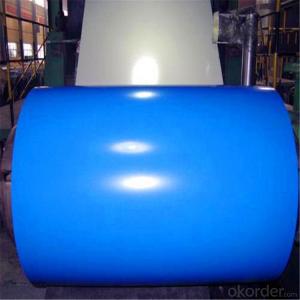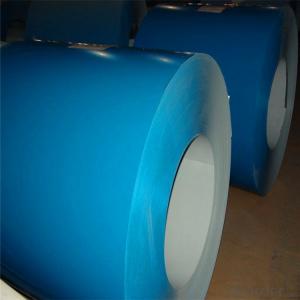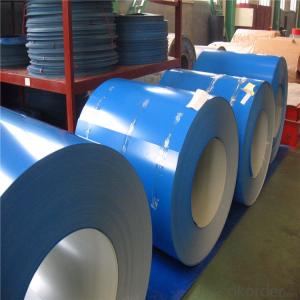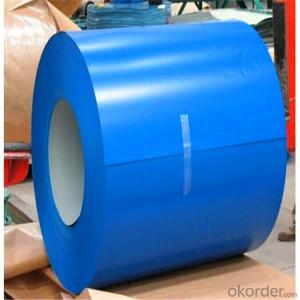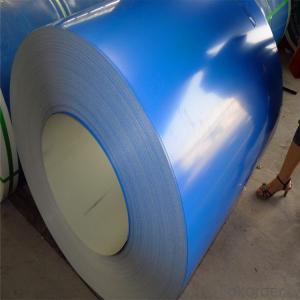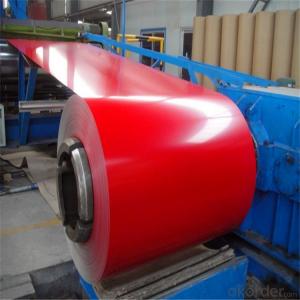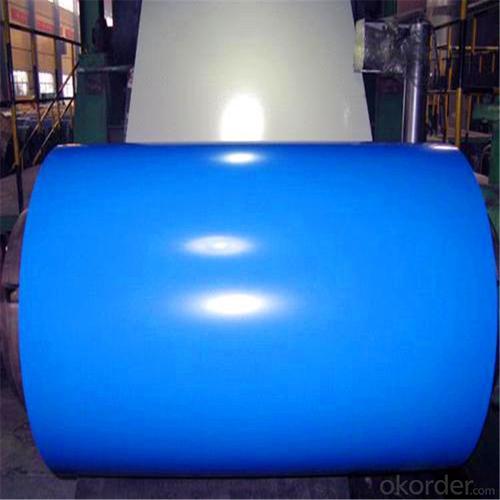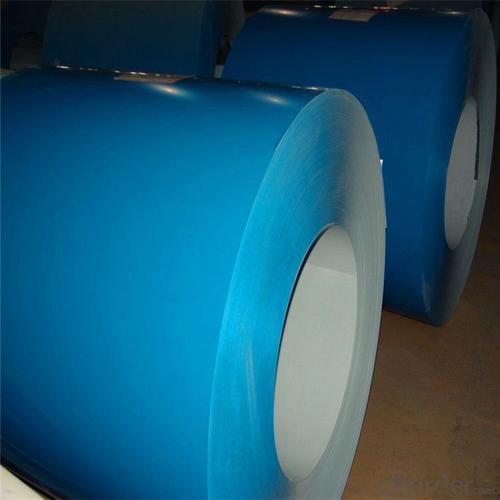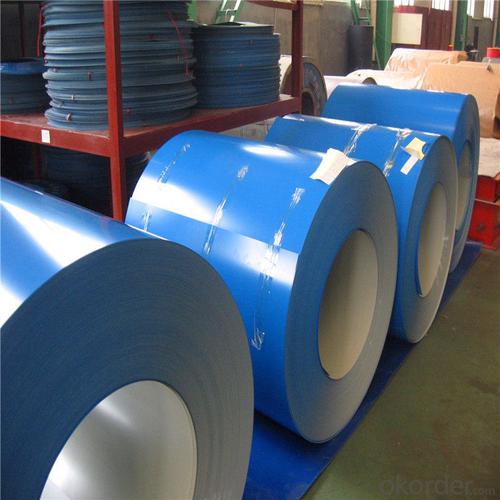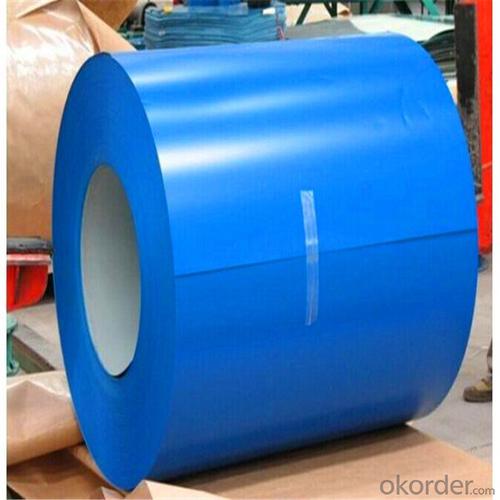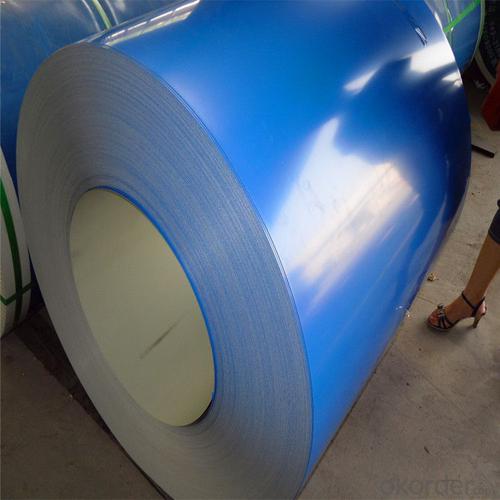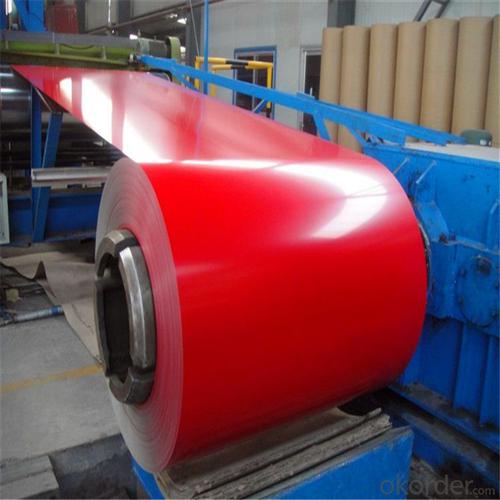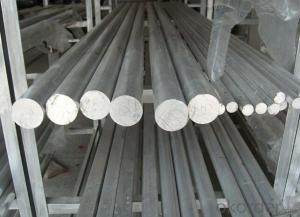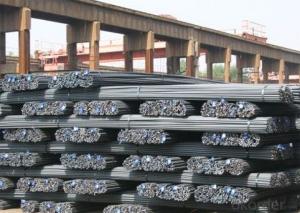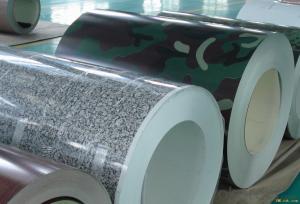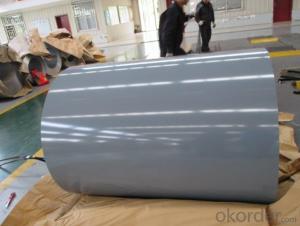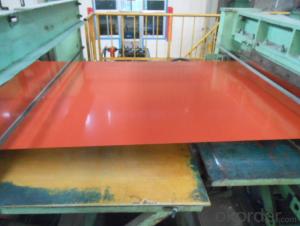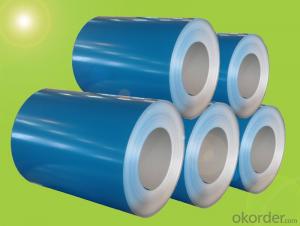Secondary PPGI Steel Coils from Shangdong
- Loading Port:
- Tianjin
- Payment Terms:
- TT or LC
- Min Order Qty:
- 25 m.t.
- Supply Capability:
- 5000 m.t./month
OKorder Service Pledge
OKorder Financial Service
You Might Also Like
Specification
Secondary PPGI Steel Coils
Description of Secondary PPGI Steel Coils
Product | PPGI/PPGL |
Capacity | 5,000 tons/month |
Base material | Hot dipped galvanized steel |
Thickness | 0.2-2.0mm |
Width | 600-1250mm(according to your need) |
Coil Weight | 3-6tons |
Quality | SGCC, DX51D |
Color | RAL No. or customers samples’ color |
Zinc-coating | 30g/m2-180g/m2 |
Coil ID | 508mm/610mm |
Technique | Cold rolled—hot dipped galvanized—color coated |
Painting | Top painting:15~25μm |
Back painting: 6~10μm | |
Tolerance | Thickness: +/-0.02mm |
Width:+/-2mm | |
Shipment time | within 15-45 workdays |
Payment | T/T, L/C at sight |
Packing | Standard export packing |
The special order can be negotiated. | |
Application of Secondary PPGI Steel Coils
APPLICATION OF OUR PREPAINTED STEEL | ||||||||||
Construction | Outside | Workshop,agricultural warehouse,residential precast unit | ||||||||
corrugated roof,roller shutter door,rainwater drainage pipe,retailer booth | ||||||||||
Inside | Door,doorcase,light steel roof stucture,folding screen,elevator,stairway,ven gutter,Construction Wall | |||||||||
Electrical applicance | Refrigerator,washer,switch cabnet,instrument cabinet,air conditioning,micro-wave owen,bread maker | |||||||||
Fuiniture | Central heating slice,lampshade,chifforobe,desk,bed,locker,bookself | |||||||||
Carrying trade | Exterior decoration of auto and train,clapboard,container,isolation lairage,isolation board | |||||||||
Qthers | Writing panel,garbagecan,billboard,timekeeper,typewriter,instrument panel,weight sensor,photographic equipment | |||||||||
Products Show of Secondary PPGI Steel Coils

Product Advantages
1.With nearly 20 years experience in prepainted steel, accommodate different marketdemands. | ||||||||||||||
2.'Quality first, service first' is our business aim; 'The good faith get respect,cast quality market' is our Business philosophy . | ||||||||||||||
3.Having two series producttion line,with the abbual production capacity of 240000 tons. | ||||||||||||||
4.Exceed International ISO9001:2008&ISO14001:2004 quality and environmental standards | ||||||||||||||
5.Meet with ROHS standard |
Company Information
CNBM International Corporation is the most important trading platform of CNBM group.
Whith its advantages, CNBM International are mainly concentrate on Cement, Glass, Iron and Steel, Ceramics industries and devotes herself for supplying high qulity series of refractories as well as technical consultancies and logistics solutions.


F A Q
1, Your advantages?
professional products inquiry, products knowledge train (for agents), smooth goods delivery, excellent customer solution proposale
2, Test & Certificate?
SGS test is available, customer inspection before shipping is welcome, third party inspection is no problem
3, Factory or Trading Company?
CNBM is a trading company but we have so many protocol factories and CNBM works as a trading department of these factories. Also CNBM is the holding company of many factories.
4, Payment Terms?
30% TT as deposit and 70% before delivery.
Irrevocable L/C at sight.
5, Trading Terms?
EXW, FOB, CIF, FFR, CNF
6, After-sale Service?
CNBM provides the services and support you need for every step of our cooperation. We're the business partner you can trust.
For any problem, please kindly contact us at any your convenient time.
We'll reply you in our first priority within 24 hours.
- Q: What are the applications of special steel in the defense sector?
- Special steel, which is also referred to as high-strength or high-performance steel, has a wide range of uses in the defense sector due to its distinct properties and capabilities. The utilization of special steel in the defense sector can be categorized into different areas: 1. Armor and ballistic protection: In the production of armored vehicles, tanks, and personnel carriers, special steel is extensively employed. Its exceptional strength and hardness make it an optimal material for safeguarding against ballistic threats like bullets, fragments, and explosives. Special steel plates reinforce the structure and provide penetration resistance. 2. Ammunition and weapon components: Various weapon components, such as barrels, bolts, and receivers, are manufactured using special steel. Its remarkable strength, durability, and resistance to wear and corrosion make it suitable for producing firearms and ammunition. Special steel alloys can endure the high temperatures and pressure generated during firing, ensuring dependable performance and durability of weapons. 3. Aircraft and aerospace components: Special steel is employed in the construction of aircraft and aerospace components like landing gears, engine parts, and structural elements. Its high strength-to-weight ratio allows for the production of lightweight yet sturdy components, enhancing the overall performance and safety of military aircraft. Special steel alloys also exhibit excellent fatigue resistance and can withstand high-temperature environments, making them suitable for demanding aerospace applications. 4. Naval applications: Special steel plays a vital role in the naval applications of the defense sector, including the construction of warships, submarines, and naval vessels. Its corrosion resistance, high strength, and toughness make it an ideal material for shipbuilding, ensuring the longevity and structural integrity of naval platforms. Special steel is also used in critical components like propeller shafts, hulls, and others that require exceptional strength and resistance to harsh marine environments. 5. Missiles and rocketry: Special steel is used in the manufacturing of missiles, rockets, and their propulsion systems. Its ability to withstand high temperatures, strength, and resistance to extreme forces make it suitable for producing critical components like rocket nozzles and motor casings. Special steel alloys can endure the intense heat and pressure generated during rocket propulsion, ensuring reliable and efficient performance. In conclusion, the applications of special steel in the defense sector are extensive and diverse. Its unique properties and capabilities contribute significantly to the development of robust, reliable, and high-performance defense systems, ensuring the safety and security of military personnel and assets.
- Q: How does special steel contribute to the agricultural sector?
- Special steel contributes to the agricultural sector by providing durable and high-quality materials for various agricultural machinery and equipment. It enhances the performance and longevity of farming tools like plows, harrows, and combine harvesters, making them more resistant to wear and tear. Special steel also supports the construction of storage facilities, irrigation systems, and infrastructure in agriculture, ensuring improved efficiency and productivity in the sector.
- Q: How does special steel contribute to improving product aesthetics?
- Special steel contributes to improving product aesthetics by offering a wide range of finishes and textures that enhance the visual appeal of the product. Whether it is a polished, brushed, or matte finish, special steel can give products a sleek and high-quality appearance. Additionally, special steel can be shaped and formed into intricate designs, allowing for unique and visually appealing product features. Overall, the use of special steel in manufacturing helps elevate the aesthetic appeal of products, making them more visually pleasing and desirable to consumers.
- Q: What are the properties of high-speed tool steel?
- High-speed tool steel is known for its exceptional hardness, wear resistance, and ability to retain its cutting edge even at high temperatures. It also exhibits excellent toughness, strength, and dimensional stability, making it ideal for applications that involve high-speed machining, cutting, or drilling operations. Additionally, high-speed tool steel has good heat resistance and can withstand thermal shock, making it suitable for use in demanding industrial environments.
- Q: Can special steel be used in the plumbing industry?
- Yes, special steel can be used in the plumbing industry. Special steel, such as stainless steel or alloy steel, is often preferred for plumbing applications due to its corrosion resistance and high strength properties. It is commonly used for pipes, fittings, valves, and other components in plumbing systems to ensure durability and longevity.
- Q: What are the factors that affect the machinability of special steel?
- The factors that affect the machinability of special steel include its chemical composition, microstructure, hardness, and the presence of impurities or additives. Additionally, the cutting conditions and tool materials used during machining operations also play a significant role in determining the machinability of special steel.
- Q: What are the different surface treatments applied to special steel?
- The different surface treatments applied to special steel include galvanizing, electroplating, powder coating, painting, passivation, nitriding, and heat treatment. These treatments are used to enhance the corrosion resistance, hardness, and aesthetics of the steel, depending on the specific application requirements.
- Q: How is alloy steel used in the manufacturing of gears and shafts?
- Alloy steel is commonly used in the manufacturing of gears and shafts due to its superior strength, durability, and resistance to wear and tear. Its unique properties make it ideal for withstanding high torque and heavy loads, ensuring smooth and efficient operation of gears and shafts in various industrial applications.
- Q: How does special steel contribute to reducing energy consumption?
- Special steel can contribute to reducing energy consumption in several ways. Firstly, special steel is often used in the manufacturing of more efficient and lightweight components, such as in the automotive and aerospace industries. These components help to reduce the overall weight of vehicles and aircraft, resulting in lower energy requirements for propulsion. Additionally, special steel can be utilized in the construction of energy-efficient buildings and infrastructure. Its high strength and durability allow for the creation of lighter and thinner structural elements, which can reduce the amount of steel required and the energy needed for construction. Furthermore, special steel alloys can have improved heat transfer properties, making them ideal for the production of energy-efficient appliances and equipment. By enhancing the thermal conductivity, special steel facilitates faster heating or cooling processes, reducing energy consumption in various applications like refrigerators, air conditioners, and industrial machinery. In summary, special steel's contribution to reducing energy consumption lies in its ability to enable lightweight designs, construct energy-efficient buildings, and enhance heat transfer efficiency in appliances and equipment.
- Q: What are the main factors affecting the fracture toughness of special steel?
- The fracture toughness of special steel can be affected by several key factors, encompassing: 1. Alloy composition: The fracture toughness of the steel can be greatly influenced by its specific chemical composition, including the type and amount of alloying elements. Elements like chromium, nickel, and molybdenum have the potential to enhance toughness by promoting the formation of fine-grained microstructures or improving the steel's ability to resist crack propagation. 2. Heat treatment: Determining the fracture toughness of the steel is heavily reliant on the temperature and duration of the heat treatment process, as well as the subsequent cooling. Proper heat treatment can refine the microstructure and eliminate any potential defects, thereby enhancing the steel's resistance to fracture. 3. Microstructure: The fracture toughness of the steel is profoundly impacted by its microstructure, encompassing grain size and distribution, phase composition, and the presence of inclusions. Generally, finer-grained structures exhibit higher toughness due to their improved resistance to crack propagation. 4. Existence of defects: The presence of defects, such as cracks, voids, or inclusions, within the steel can act as stress concentrators, ultimately diminishing its fracture toughness. These defects can initiate cracks and facilitate their propagation, ultimately leading to reduced toughness. 5. Temperature: Fracture toughness is contingent upon temperature, and the behavior of special steel can significantly vary at different temperature ranges. Some steels exhibit improved toughness at lower temperatures due to microstructural transformations, while others may experience decreased toughness at elevated temperatures due to material softening. 6. Loading conditions: The fracture toughness of special steel can also be impacted by the loading conditions, including the rate of loading or the presence of dynamic loading. Higher loading rates or dynamic loading can result in reduced toughness, as the steel may not have sufficient time to deform and absorb energy before fracturing. 7. Mechanical properties: The mechanical properties of the steel, such as strength, hardness, and ductility, can influence its fracture toughness. Higher strength and hardness can sometimes lead to decreased toughness, as the material becomes more brittle. However, a balance between strength and toughness can be achieved by carefully selecting the alloy composition and heat treatment parameters. In summary, the fracture toughness of special steel is determined by a complex interplay of various factors, including alloy composition, heat treatment, microstructure, defects, temperature, loading conditions, and mechanical properties. By optimizing these factors, the fracture toughness of special steel can be enhanced for specific applications.
Send your message to us
Secondary PPGI Steel Coils from Shangdong
- Loading Port:
- Tianjin
- Payment Terms:
- TT or LC
- Min Order Qty:
- 25 m.t.
- Supply Capability:
- 5000 m.t./month
OKorder Service Pledge
OKorder Financial Service
Similar products
Hot products
Hot Searches
Related keywords
